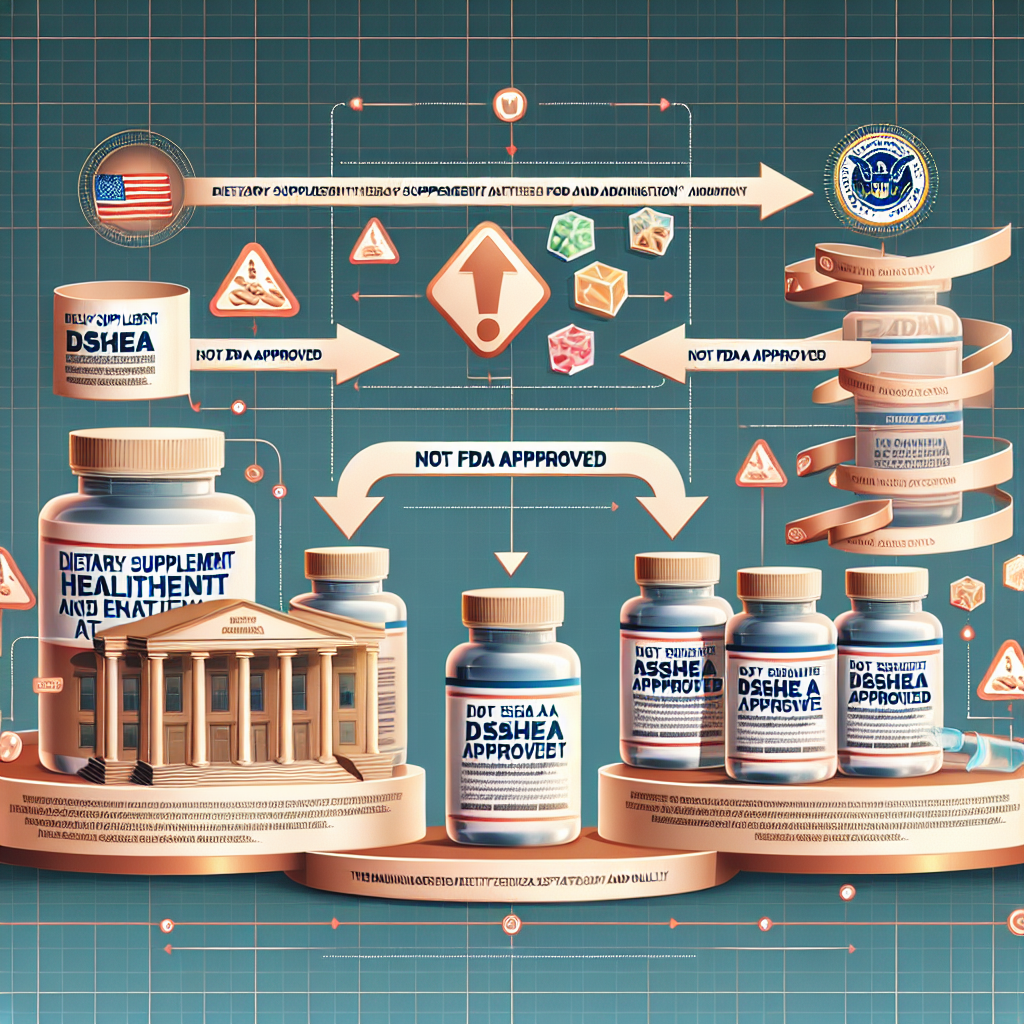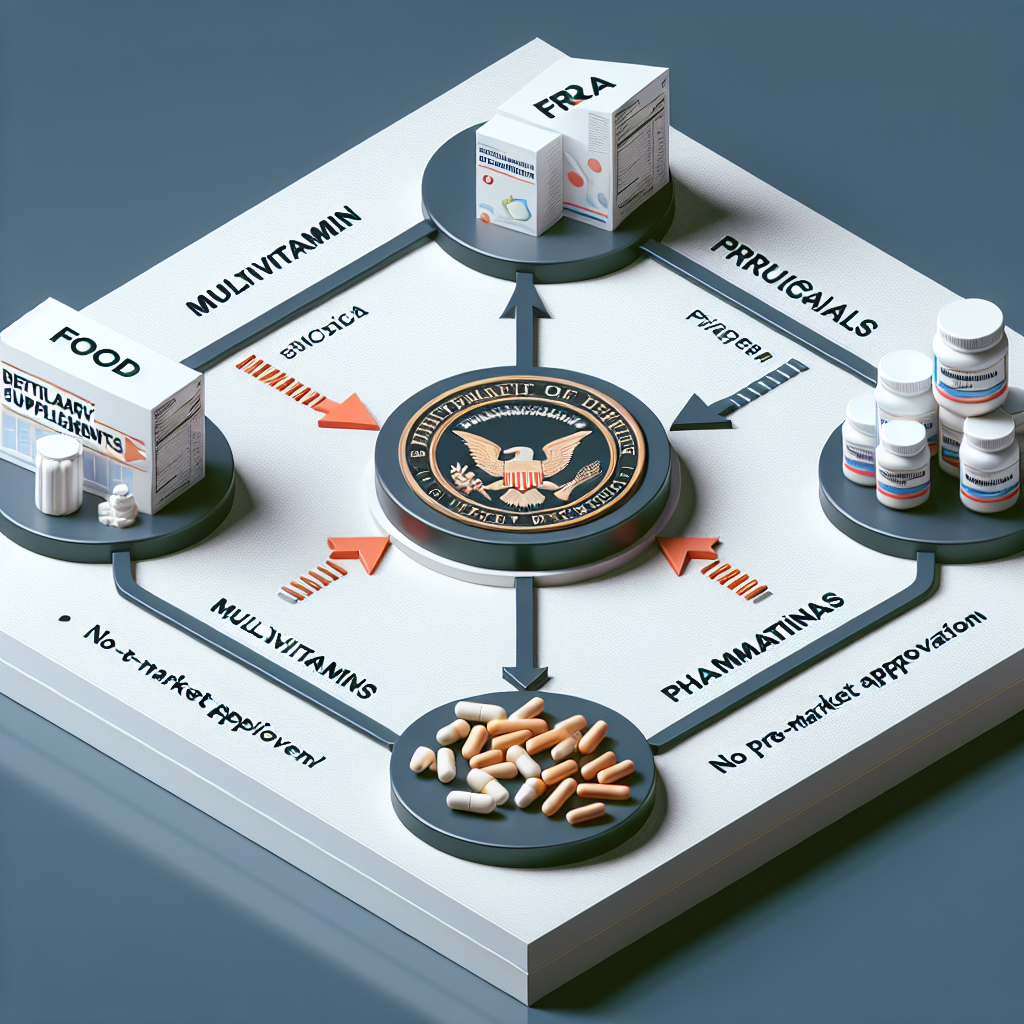In a world where health consciousness is on the rise, vitamins and supplements have become a staple in many people’s daily routines. Yet, a puzzling question remains for many consumers and manufacturers alike: why aren’t vitamins FDA approved? This question often leads to confusion about the safety and efficacy of these widely consumed products. For forward-thinking supplement manufacturers, businesses seeking strategic ingredient partnerships, and health-conscious product developers, understanding this regulatory landscape isn’t just informative—it’s essential for success in today’s competitive market. Understanding this regulatory reality is critical for anyone in the supplement industry.
The lack of FDA approval doesn’t mean vitamins exist in an unregulated wild west, but rather that they follow a different regulatory path than pharmaceutical drugs. This distinction affects everything from how products are developed and marketed to how consumers perceive their safety and effectiveness. As we explore this topic, we’ll uncover crucial insights that can help manufacturers make better decisions about product development, sourcing, and marketing strategies.
The Dietary Supplement Health and Education Act: A Game-Changing Framework
The answer to why vitamins aren’t FDA approved lies primarily in the Dietary Supplement Health and Education Act (DSHEA) of 1994. This landmark legislation fundamentally changed how supplements are regulated in the United States. Prior to DSHEA, the FDA attempted to regulate dietary supplements more strictly, similar to food additives or drugs. However, the supplement industry and consumers pushed back, concerned that overregulation would restrict access to beneficial products.
Under DSHEA, vitamins and other dietary supplements are legally classified as a subcategory of food, not drugs. This critical distinction means supplements don’t require FDA pre-market approval—they don’t need to be “FDA approved” before hitting store shelves. Instead, manufacturers are responsible for ensuring their products are safe before marketing them.
This classification has profound implications for both the industry and consumers. For manufacturers, it means:
- Faster time to market without lengthy approval processes
- Lower development costs without expensive clinical trials
- More flexibility in product formulation and innovation
- Greater responsibility for self-regulation and quality control
For consumers, the implications include:
- Wider availability of dietary supplements
- Generally lower costs compared to prescription medications
- The need for greater personal research and discernment
- Reliance on manufacturer claims and third-party certifications
As a nutritional product developer or small R&D company, understanding this framework is crucial. While it offers opportunities for innovation and market entry, it also places the burden of quality and safety squarely on your shoulders—a responsibility that shouldn’t be taken lightly.
Post-Market Regulation: The FDA’s Limited Oversight
While vitamins and supplements don’t require pre-market approval, they aren’t completely free from FDA oversight. The agency exercises what’s called “post-market regulation,” meaning they can take action after products are already being sold. This approach represents a fundamental shift from prevention to reaction.
Under this system, the FDA can intervene if a supplement is found to be unsafe after it reaches consumers. They can:
- Issue warnings about potentially dangerous products
- Request voluntary recalls from manufacturers
- Mandate recalls in cases of serious health risks
- Take enforcement action against companies selling adulterated or misbranded products
However, the agency faces significant limitations. With thousands of supplement products on the market and limited resources, comprehensive monitoring is practically impossible. The FDA must often rely on adverse event reports from consumers, healthcare providers, and manufacturers themselves to identify potential problems.
This reality places enormous responsibility on consumers to research products and choose reputable brands. It also creates a competitive advantage for manufacturers who prioritize quality and transparency. Enterprise businesses requiring strategic ingredient partnerships should note that aligning with suppliers who maintain rigorous quality standards can significantly reduce regulatory risks.
Nutritional product developers must recognize that while the barrier to market entry may be lower for supplements than for drugs, the potential consequences of quality issues can be devastating—both for consumers’ health and the company’s reputation and financial wellbeing.
The Truth About Safety Claims and Quality Variation
One of the most confusing aspects of the supplement industry stems from what manufacturers can and cannot claim about their products. Under DSHEA, supplement makers cannot claim their products treat, cure, or prevent specific diseases without FDA approval—the same approval process required for drugs. This creates a somewhat paradoxical situation where vitamins aren’t FDA approved, yet making certain claims about them would require such approval.
Instead, manufacturers are limited to making “structure/function claims” that describe how an ingredient might affect the body’s structure or function. For example, “supports immune health” rather than “prevents colds.” These claims must be accompanied by a disclaimer stating that the FDA has not evaluated the claim and that the product is not intended to diagnose, treat, cure, or prevent any disease.
This regulatory framework leads to significant variation in product quality across the industry. Without standardized pre-market testing requirements, supplements can vary dramatically in:
- Ingredient purity and potency
- Manufacturing standards and quality control
- Accuracy of labeling and ingredient declarations
- Presence of contaminants or undeclared ingredients
Health-conscious product manufacturers should be particularly concerned about these variations. A 2013 study published in the journal BMC Medicine found that many herbal supplements didn’t contain the ingredients listed on their labels, with some containing potentially harmful substitutions or fillers.
The industry does have Good Manufacturing Practices (GMPs) regulations that set standards for production. However, compliance varies, and inspection resources are limited. For forward-thinking supplement manufacturers, exceeding these minimum standards represents both an ethical commitment and a market differentiation strategy.
Quality, Transparency, and Empowerment: The Path Forward
In this complex regulatory landscape, NutraAeon’s philosophy of quality, transparency, and empowerment offers a beacon for navigating the challenges of the supplement industry. As a global nutritional ingredients partner, NutraAeon recognizes that the absence of FDA approval for vitamins places greater responsibility on every link in the supply chain.
Quality isn’t just a marketing buzzword but a commitment that begins with sourcing. Premium ingredients form the foundation of effective, safe supplements. NutraAeon’s rigorous testing protocols and quality control exceed USP and FDA expectations precisely because the regulatory framework requires industry participants to go above and beyond minimal compliance. For health-conscious product manufacturers, this approach means confidence in every ingredient that goes into their formulations.
Transparency addresses one of the biggest concerns in a market where vitamins aren’t FDA approved. Without mandatory standardized testing and reporting, consumers and manufacturers must rely on voluntary disclosure. NutraAeon provides complete documentation, certificates of analysis, and full supply chain visibility from source to delivery. This transparency empowers both manufacturers and end consumers with the information they need to make informed decisions.
Empowerment comes through knowledge and capability. NutraAeon supports nutritional product developers with technical expertise, regulatory guidance, and innovative ingredient solutions. In an industry where regulatory responsibility falls heavily on manufacturers, having a partner who understands both the scientific and regulatory landscapes is invaluable.
Forward-thinking supplement manufacturers recognize that while vitamins aren’t FDA approved, the most successful products in the market often meet standards that go well beyond minimal regulatory requirements. By partnering with suppliers who share this philosophy, manufacturers can create products that stand out in a competitive marketplace increasingly defined by consumer demand for quality and transparency.
Making Informed Choices in an Unregulated Market
The reality that vitamins aren’t FDA approved doesn’t mean consumers or manufacturers should approach the market with fear, but rather with informed caution and strategic diligence. For businesses across the supplement supply chain, this understanding shapes every aspect of operations.
For enterprise businesses requiring strategic ingredient partnerships, the selection criteria should go beyond price and availability to include:
- Comprehensive testing documentation and certification
- Transparency about sourcing and manufacturing practices
- Stability and reliability of supply chain
- Technical support and formulation expertise
- Regulatory compliance assistance
Small businesses and R&D companies face particular challenges in this landscape. With limited resources, they must be especially careful about ingredient selection and quality control. Partnership with established, trustworthy suppliers can provide the expertise and quality assurance that might otherwise be out of reach.
Nutritional product developers should embrace the freedom to innovate that the DSHEA framework provides while voluntarily adopting higher standards than regulations require. Third-party testing and certification from organizations like NSF International, USP, or ConsumerLab can help bridge the credibility gap created when vitamins aren’t FDA approved.
For health-conscious product manufacturers, the absence of pre-market approval places a heightened ethical responsibility to ensure product safety and efficacy. This means:
- Conducting appropriate testing even when not required
- Making only substantiated claims about products
- Implementing robust quality control processes
- Monitoring for adverse events and responding appropriately
- Staying informed about regulatory developments and scientific research
NutraAeon’s vision to be the premier global sourcing partner for nutritional ingredients aligns perfectly with these industry needs. By helping manufacturers create products that stand out through scientific expertise, market insights, and commitment to excellence, NutraAeon supports a future where the supplement industry’s self-regulation exceeds what government oversight could achieve.
The truth about why vitamins aren’t FDA approved reveals both challenges and opportunities. While the regulatory framework may seem permissive, it creates a market where the most successful players are those who voluntarily exceed minimum requirements. For manufacturers committed to quality and consumers seeking effective products, understanding this landscape is the first step toward making informed choices that support health and business goals alike.
In an industry where vitamins aren’t FDA approved, the true differentiator becomes not what regulations require, but what ethical business practices demand. By embracing higher standards, manufacturers and their ingredient partners can build consumer trust that transcends regulatory frameworks, creating products that truly deliver on their promises of supporting health and wellness.


